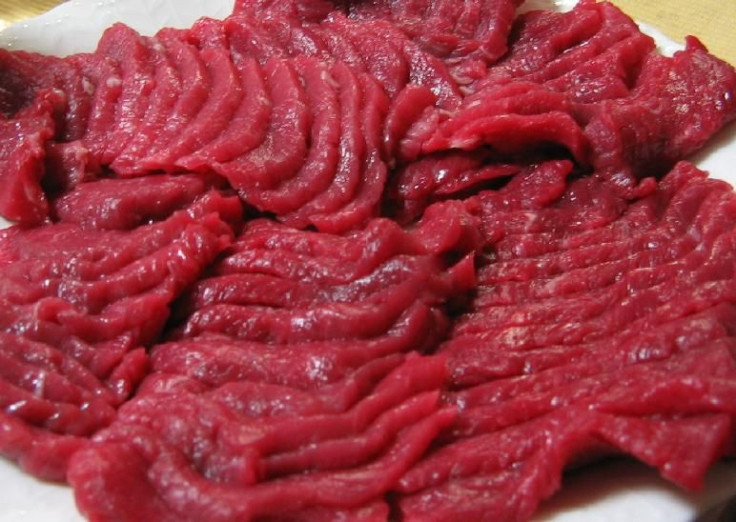Horse Meat More Common In France Than Any Other European Country

DNA testing across Europe has revealed that France is responsible for the highest number of horse meat cases in all of Europe.
Horse meat slaughterhouses were banned from the United State in 2007 after the US Department of Agriculture, USDA, cut funding for horse meat inspection.
While many nutritionists claim horse meat is a surprisingly good source of protein that is also low in fat, eating horse meat is seen as taboo in Western culture since horses are considered pets as opposed to wild animals.
After a litany of horse meat cases came to light in major European countries such as Ireland and Britain, the European Union set out to determine the prevalence of this epidemic across Europe.
After analyzing 7,259 tests from every corner of the continent, the European Health Commission, EHC, found that around five percent of beef products tested positive for an anti-inflammatory drug known as phenylbutazone that is commonly found in horse DNA, according to the Associated Press.
Although this doesn't indicate any danger to Europe as a whole, members of the EHC say horse meat cases are more common in certain countries. Out of the 353 tests conducted around France 47 tested positive for horse meat yielding a 13 percent exposure rate.
Greece came in a close second after 36 of the 288 tests came up positive for horse DNA showing an exposure rate of 12.5 percent.
"Today's findings have confirmed that this is a matter of food fraud and not of food safety," stated Commissioner of European Health and Consumers Tonio Borg in a press release.
The EU hopes this data will be valuable for the "comprehensive five point action plan" they recently presented to Member State national authorities. The goal of this proposal is to alleviate consumer's concern of the European food market in five major areas:
1. Food fraud
2. Testing program
3. Horse passport
4. Official controls and penalties
5. Origin labeling
Borg added, "Restoring the trust and confidence of European consumers and trading partners in our food chain following this fraudulent labeling scandal is now of vital importance for the European economy given that the food sector is the largest single economic sector in the EU."
"In the coming months, the Commission will propose to strengthen the controls along the food chain in line with lessons learned."
Published by Medicaldaily.com



























